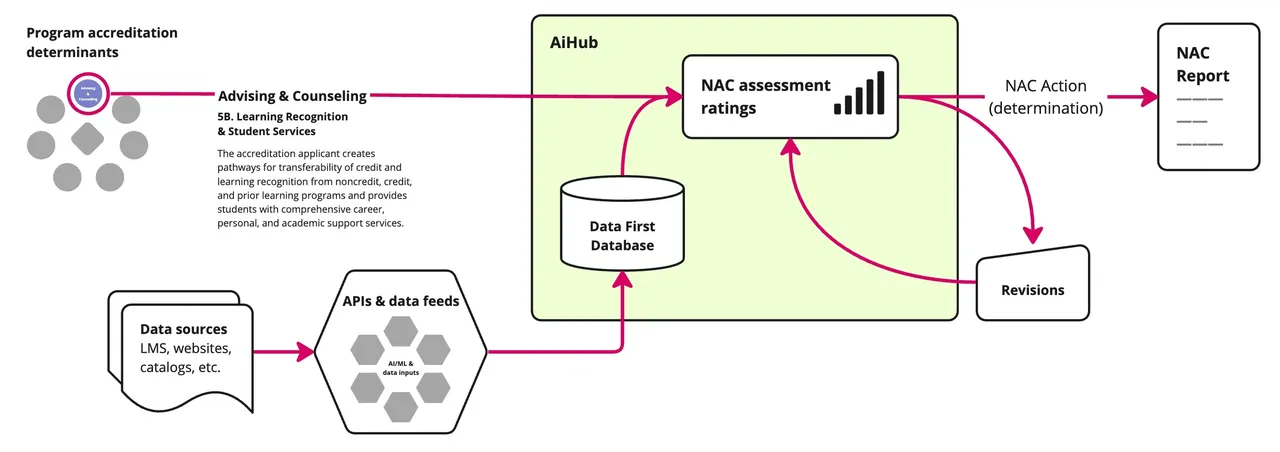Quality Assurance in Postsecondary Education

Accreditation is a process of external quality review that assesses an institution or program’s educational quality and institutional effectiveness. Accreditation enables access to federal and state funding, student aid, visa-granting authority, and other benefits. However, most non-degree and non-credit programs are not accredited or are accredited by agencies that ED does not recognize. Therefore, these programs lack quality assurance and accountability mechanisms and may not be eligible for support or transfer credit.
NAC’s model includes an eligibility assessment, program application, accreditation workshop, program evaluation report, peer evaluation visit, team report, program response, and commission action. The evaluation process leads to one of several possible outcomes depending on the program’s compliance with NAC accreditation standards: Initial Accreditation, Reaccreditation, Denial or Withdrawal. In addition, the Accreditation Commission may defer deciding on accreditation pending more information or action by the program provider. The accreditation standards incorporate (but are not limited to) program outcomes and the minimum required skills and competencies for students to get a job.
Training program content and learning flow will be accredited and evaluated based on alignment of skills, competencies, and tasks related to employer and market expectations. Hence, NAC’s standards and accreditation architecture are prefaced on an attribute and nano-based accreditation model which is a granular approach to evaluating the quality and effectiveness of non-degree and non-credit training content and programs. This model combines two concepts:
Attribute-based accreditation: NAC focuses on the attributes or competencies that learners acquire through the program, rather than just the content or structure of the program. Attribute-based accreditation allows for more flexibility and diversity in the design and delivery of programs, as well as more personalized and adaptive learning experiences for learners.
Nano accreditation: This is a method of NAC accreditation that applies to small-scale, modular, and granular learning units, such as micro-credentials, badges, or certificates that are common in non-degree and non-credit programs. Nano accreditation enables learners to demonstrate their skills and knowledge in specific domains or topics and to stack them into larger qualifications or portfolios.
NAC’s attribute and nano-based accreditation model aims to address the challenges and opportunities of non-degree and non-credit training, such as:
- The increasing demand for competency and skills-based learning, lifelong learning, and upskilling in a rapidly changing world.
- The emergence of new forms of learning and assessment, such as gamification, simulation, and peer feedback.
- The need for transparency, validity, and recognition of non-degree and non-credit learning outcomes across different contexts and stakeholders.
